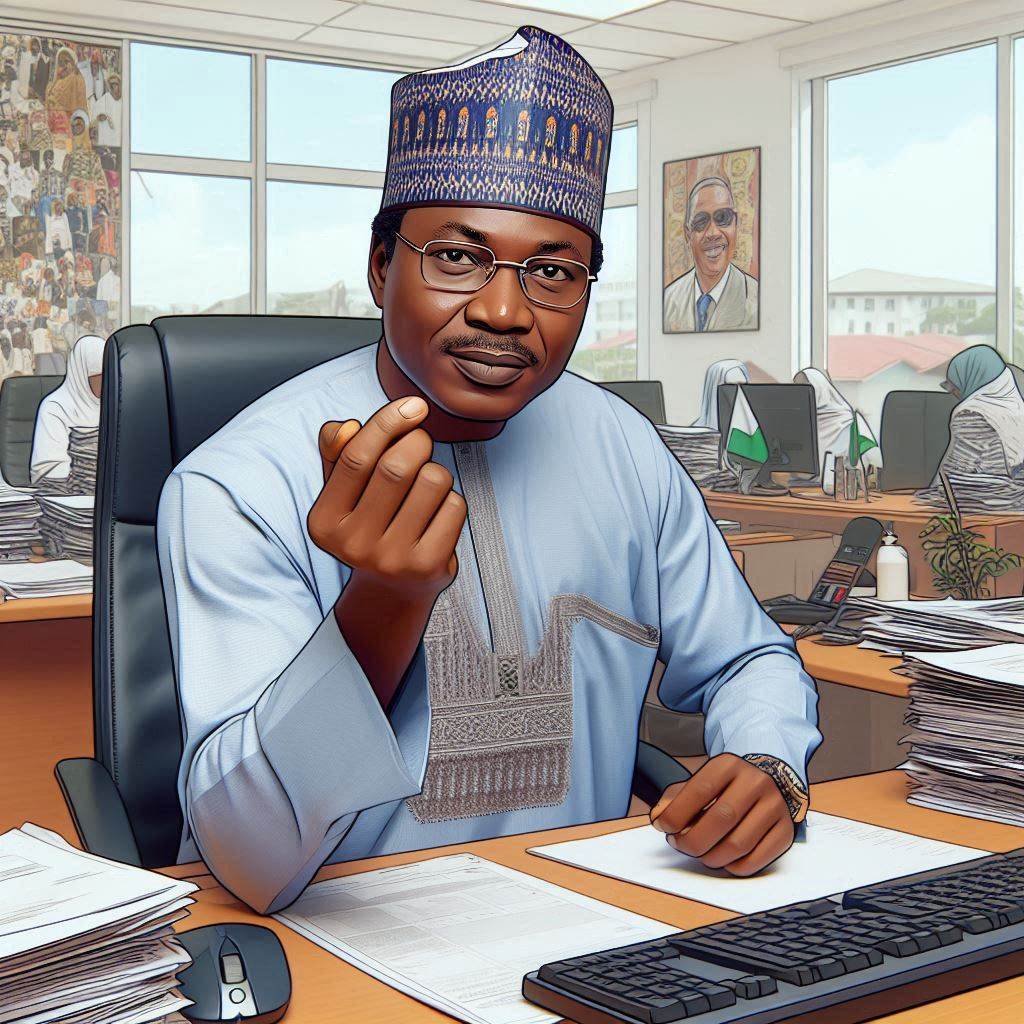Introduction
Global politics encompasses the complex and multifaceted interactions between countries, which influence international relations, trade, and security in global politics impact on Nigerian policies.
It includes diplomacy, international law, and global institutions that shape the ways nations cooperate and compete on the world stage.
Nigeria plays a significant role in global politics due to its strategic location, substantial population, and economic potential.
As Africa’s most populous country and one of its largest economies, Nigeria is a key player in regional and international affairs.
It actively participates in international organizations such as the United Nations, the African Union, and the Economic Community of West African States (ECOWAS).
Nigeria’s contributions to global peacekeeping missions, its involvement in international trade, and its diplomatic engagements underscore its importance on the global stage.
Through these activities, Nigeria seeks to influence global policies and advocate for the interests of developing nations.
This section explores the impact of global politics on Nigerian policies.
Global political dynamics profoundly shape Nigeria’s economic strategies, foreign relations, and security measures.
By examining these influences, we gain a deeper understanding of how Nigeria navigates its role in an interconnected world.
Historical Overview
In order to understand the impact of global politics on Nigerian policies, it is essential to delve into the historical background of Nigeria’s governance and how it has been influenced by external forces.
Brief History of Nigeria’s Policies and their Ties to Global Politics
Nigeria gained independence from British colonial rule in 1960, with its policies reflecting a blend of indigenous traditions and Western democratic principles. However, these policies were not developed in isolation, but were influenced by global events and ideologies.
From the onset of independence, Nigeria sought to establish itself as a key player in African politics, advocating for decolonization and Pan-African solidarity.
This commitment to regional leadership inevitably drew Nigeria into the realm of global politics, as it navigated complex relationships with both Western and Eastern bloc countries.
Examination of How Colonialism Shaped Nigerian Policies
The legacy of colonialism profoundly shaped Nigerian policies, as the country inherited a bureaucratic system, legal framework, and economic structure from its British colonizers.
These colonial institutions laid the foundation for Nigeria’s post-independence governance, influencing its approach to governance, law enforcement, and public administration.
Furthermore, the division of Nigeria into three regions by the British colonialists – Northern, Western, and Eastern regions – created a legacy of regionalism that continues to influence Nigerian politics today.
The uneven development of these regions under colonial rule has led to persistent disparities in wealth, infrastructure, and political power, shaping the country’s policies on federalism, resource allocation, and social welfare.
Impact of Cold War Politics on Nigerian Governance
The Cold War era also had a significant impact on Nigerian governance, as the country became a battleground for ideological influence between the Soviet Union and the United States.
Nigeria’s strategic location, oil resources, and large population made it a valuable ally for both superpowers, resulting in complex diplomatic relationships and international alliances.
During the Cold War, Nigeria experienced political instability, military coups, and civil unrest, as rival factions vied for power and external support.
The United States and Soviet Union each sought to sway Nigerian policies in their favor, leading to conflicting priorities and foreign policy decisions that had lasting consequences on domestic governance.
Basically, the historical overview of Nigerian policies reveals a complex interplay between domestic priorities and global politics.
From colonial legacies to Cold War dynamics, external forces have continually shaped Nigeria’s governance, influencing its policies, institutions, and international relations.
Understanding this historical context is crucial for analyzing the contemporary challenges and opportunities that Nigeria faces in a rapidly changing global landscape.
Global politics plays a crucial role in shaping economic policies in Nigeria. The impact of global economic policies on Nigeria can be analyzed in several ways
Analysis of how global economic policies affect Nigeria
Nigeria, as a developing country, heavily relies on global economic trends and policies to guide its own economic decisions.
For example, changes in international interest rates or commodity prices can significantly impact Nigeria’s economy. Fluctuations in global markets can lead to inflation, affecting the purchasing power of Nigerians.
Furthermore, policies adopted by major economic players like the United States, China, or the European Union can have ripple effects on Nigeria’s economy.
These policies may influence foreign investment flows, trade relations, and currency exchange rates, ultimately shaping Nigeria’s economic landscape.
Trade agreements and partnerships with other countries
Nigeria’s trade agreements and partnerships with other countries are also influenced by global politics.
Diplomatic relations and geopolitical conflicts can impact Nigeria’s participation in regional trade blocs or international trade agreements.
Changes in global trade policies, such as tariff wars or preferential trade agreements, can affect Nigeria’s access to foreign markets or the competitiveness of its exports.
Nigerian policymakers must consider economic interests in trade deals. They weigh domestic industries and international partners, accounting for global dynamics.
Exploration of how international financial organizations influence Nigerian economic policies
International financial organizations like the International Monetary Fund (IMF) and the World Bank also play a significant role in shaping Nigerian economic policies.
These institutions provide financial assistance, policy advice, and technical support to countries like Nigeria, with the aim of promoting economic development and stability.
However, their support often comes with conditions that require Nigeria to implement specific economic reforms or fiscal austerity measures.
Critics argue that these organizations’ prescriptions may not always align with Nigeria’s long-term interests. Their influence on economic policies can be controversial.
Nigeria’s cooperation with international financial organizations can impact its economy positively or negatively. It depends on policy effectiveness.
In review, the economic implications of global politics on Nigerian policies are complex and multifaceted.
As a developing country, Nigeria is intricately connected to the global economy and must navigate the challenges and opportunities presented by international economic trends and policies.
Policymakers can better understand the global economy’s interconnected nature.
They analyze how global economic policies affect Nigeria.
They discuss trade agreements and partnerships with other countries. Exploring the influence of international financial organizations on Nigerian economic policies is crucial.
Read: Famous Nigerian Alumni of Communication Arts Programs
Security and Defense
Examination of How Global Security Threats Shape Nigerian Defense Policies
Global security threats have a profound impact on shaping Nigerian defense policies.
The rise of international terrorism, cyber threats, and regional conflicts compels Nigeria to constantly adapt its defense strategies.
For instance, the activities of Boko Haram, influenced by global jihadist movements, have significantly altered Nigeria’s internal security measures.
The Nigerian government invests in counter-terrorism operations, intelligence gathering, and regional cooperation to address these threats.
Additionally, global cyber threats push Nigeria to enhance its cybersecurity infrastructure and capabilities to protect national assets and critical information systems.
This continuous adaptation ensures that Nigeria remains vigilant and prepared against evolving global threats.
Discussion on Nigeria’s Involvement in Peacekeeping Missions
Nigeria’s involvement in peacekeeping missions demonstrates its commitment to global security and stability.
Nigerian troops frequently participate in United Nations peacekeeping missions, offering their expertise and support in conflict zones worldwide. These missions not only bolster global peace but also enhance Nigeria’s military capabilities.
By serving in diverse environments, Nigerian forces gain valuable experience in handling various conflict situations and humanitarian crises.
This experience translates into improved operational readiness and tactical proficiency back home. Nigeria’s peacekeeping efforts also elevate its international standing, showcasing its dedication to contributing to global peace and security.
Impact of Global Alliances on Nigerian Security Strategies
Global alliances significantly influence Nigerian security strategies. Strategic partnerships with countries like the United States, China, and regional powers provide Nigeria with critical military training, advanced technology, and intelligence-sharing opportunities.
For example, Nigeria’s collaboration with the United States under the Trans-Sahara Counterterrorism Partnership enhances its capabilities in combating terrorism.
Joint military exercises, capacity-building programs, and equipment transfers from these alliances strengthen Nigeria’s defense infrastructure.
Nigeria’s participation in the Multinational Joint Task Force (MNJTF) against Boko Haram highlights collaborative security efforts.
These alliances ensure that Nigeria’s defense strategies are robust, technologically advanced, and capable of addressing both domestic and international security challenges.
Read: Communication Arts: Job Prospects and Salaries
Environmental Concerns
In recent years, the global community has increasingly focused on environmental concerns. Awareness of human activities’ impact on the planet grows.
Nigeria, as a developing country with vast natural resources, is not immune to these global trends. This section will examine how global environmental policies influence Nigeria’s natural resources and environmental policies.
Analysis of how global environmental policies affect Nigeria’s natural resources
Global environmental policies play a significant role in shaping how countries manage their natural resources.
Nigeria, with its rich biodiversity and abundant natural resources, is affected by international regulations and agreements aimed at conservation and sustainable development.
For example, the Convention on Biological Diversity and the Paris Agreement on climate change have implications for Nigeria’s policies on conservation, forestry, and climate change mitigation.
These global frameworks serve as a guiding framework for Nigeria to align its environmental policies with international best practices.
Discussion on climate change and its impact on Nigerian policies
Climate change is one of the most pressing environmental challenges facing the world today, with far-reaching implications for countries like Nigeria.
The country is particularly vulnerable to the effects of climate change, including increased temperatures, erratic rainfall patterns, and more frequent extreme weather events.
As a result, Nigerian policymakers have been compelled to incorporate climate change considerations into their policies and planning processes.
Global initiatives such as the United Nations Framework Convention on Climate Change (UNFCCC) and the Intergovernmental Panel on Climate Change (IPCC) provide guidance and support to Nigeria in addressing climate change challenges.
Exploration of global initiatives that influence Nigeria’s environmental policies
Various global initiatives and partnerships play a crucial role in shaping Nigeria’s environmental policies.
The United Nations Environment Programme (UNEP) funds environmental projects in Nigeria. The Global Environment Facility (GEF) provides technical support to implement these programs.
These partnerships enable Nigeria to access resources, expertise, and knowledge from the global community to enhance its environmental management practices.
Nigeria engages with other countries in global platforms like the United Nations Environment Assembly. This promotes sustainable development and addresses shared environmental concerns.
Therefore, the impact of global politics on Nigerian policies in the environmental domain is undeniable.
The world faces pressing environmental challenges. Firstly, Nigeria must align its policies with international standards to manage natural resources effectively. Nigeria should collaborate with global partners to address climate change.
Nigeria can pave the way for a sustainable future by engaging in global initiatives. Mainstreaming environmental concerns into policy frameworks is crucial.
Read: Impact of Communication Arts on Nigerian Media

Human Rights and Social Policies
When it comes to human rights and social policies, Nigeria is influenced by global movements and conventions. This impact shapes the country’s approach to various social issues, including education, healthcare, and equality.
Global Human Rights Movements
- Nigeria is not immune to the influence of global human rights movements.
- These movements advocate for the protection and promotion of human rights worldwide.
- They often challenge governments to uphold basic rights and freedoms for their citizens.
- In Nigeria, these movements can spark dialogue and push for policy changes.
Nigeria’s Stance on International Human Rights Conventions
- Nigeria is a signatory to various international human rights conventions.
- These conventions outline the rights that all individuals should enjoy universally.
- By becoming a member, Nigeria agrees to abide by the principles set forth in these agreements.
- However, there have been concerns about Nigeria’s full implementation of these conventions.
Analysis of Global Social Issues on Nigerian Policies
- Global social issues, such as poverty and inequality, have a significant impact on Nigerian policies.
- Education policies in Nigeria are influenced by global movements advocating for quality education for all.
- Healthcare policies are shaped by international efforts to improve access to healthcare services.
- Policies on equality and non-discrimination are affected by global calls for inclusive societies.
In general, the intersection of global politics and Nigerian policies in the realm of human rights and social issues underscores the interconnected nature of our world.
By actively engaging with global movements and conventions, Nigeria can work towards a more equitable and just society for all its citizens.
Read: Language Arts Courses: What to Expect in Nigeria
Conclusion
In this blog post, we have explored the impact of global politics on Nigerian policies. We have seen how external factors influence decision-making in Nigeria.
The relationship between global politics and Nigerian policies is complex. Understanding their interconnectedness requires a nuanced approach.
As we have discussed, Nigerian policies are often shaped by international pressures and global agendas, which can have both positive and negative implications.
It is essential for policymakers and researchers to continue studying this relationship to ensure that Nigerian policies are in line with the country’s best interests.
In closing, the dynamics between global politics and Nigerian policies are intricate and multifaceted. It is crucial to navigate these complexities carefully to promote sustainable development and prosperity in Nigeria.
We hope this blog post has shed light on the intricate nature of this relationship, prompting further research and discussion on this important topic.




